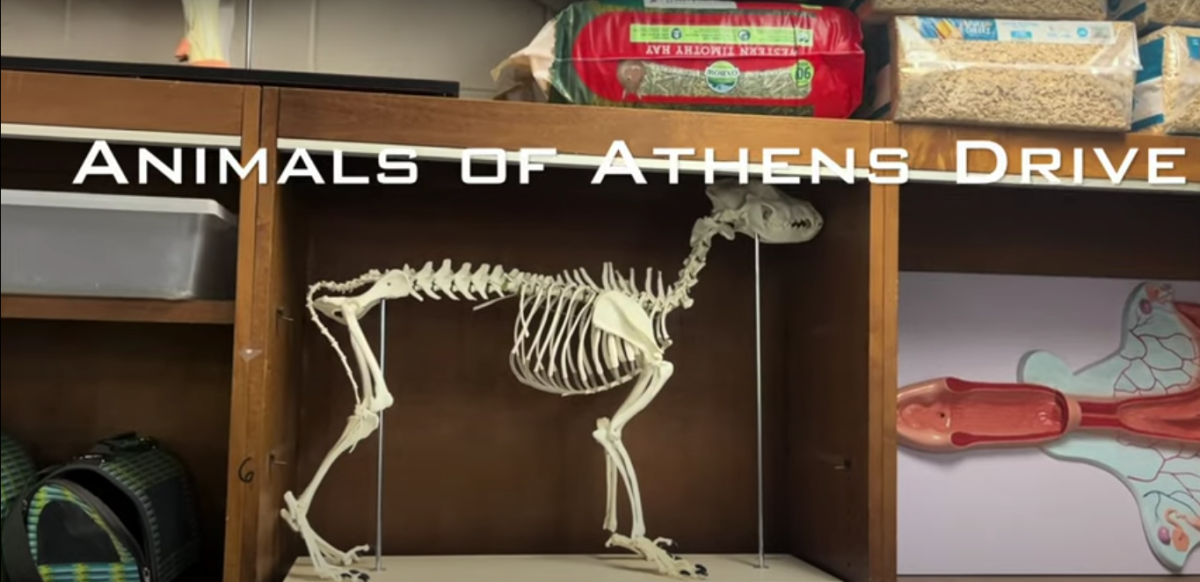The swine flu epidemic of 2009 caused a surge of fear for Americans and millions of people across the world. In 2014, an ebola virus outbreak caused similar concern. Now, the world is faced with a new dangerous virus: Zika. One case of this virus has appeared in Wake County as of March 3, 2016.
Zika virus is spread through infected “Aedes” species mosquitoes. Common symptoms of this disease include joint pain, rash, fever and conjunctivitis. These symptoms last from a few days to a week after being infected. There are no known long-term effects of this virus and one infection generally protects from future infections.
“It’s pretty scary to think about how quickly the disease spread from South America to right here in North Carolina. Hopefully, a cure will be discovered soon so I don’t think we should worry too much because it’s not fatal,” said Olivia Diamond, senior.
The first confirmed Zika virus infection was found May 2015 in Brazil. An alert was issued by the Pan American Health Organization, and the World Health Organization followed suit, declaring Zika virus “a public health emergency of international concern,” according to the CDC website. Since then, the United States has reported over 100 cases of travel-related Zika virus.
North Carolina has had five cases of Zika virus, one having just been discovered in Wake County. The infected person had been traveling outside the country and currently remains nameless. The person’s condition is being monitored and should recover within a week.
“We want to reassure citizens that there is currently no risk of transmission from this patient to others,” said Sue Lynn Ledford, Wake County’s public health division director.
There are no reports of Zika virus cases resulting from people being bitten by mosquitoes inside the United States. Therefore, it is assumed that the Zika-containing mosquitoes are not present in the country because those who have been infected were bitten in other countries.
The main concern of this virus is its effect on pregnant mothers and their unborn infant children. Zika virus causes an increased risk of birth defects in children born from mothers infected by the virus while pregnant. These babies are being born with significantly smaller heads. Scientists have traced this birth defect to microcephaly–incomplete brain development in infants.
“I know the CDC will be on top of everything and hopefully they’re figuring out what to do to ensure it does not spread,” said Jennifer Hulsey, Health Science teacher.
Thousands of cases of Zika virus are being found in South American countries. Because of strict anti-abortion laws, many infected and pregnant Latin American women are being forced to birth their children despite the possible birth defects. Many women are being urged to postpone their pregnancies, but contraceptives are often difficult to come by and sometimes illegal.
“Many people in Latin America are Catholic which would mean that they are probably very much pro-life. If a pregnant woman infected with the Zika virus chose to go through with her pregnancy and set aside the possible risks of her baby’s development because of her religion, that’s totally up to her. But abortion should still be an option,” Diamond said.
However, transmission by mosquito is not the only way for this virus to spread; unprotected sex has become the primary form of transmission. 12 Zika virus cases in the U.S. are now thought to have spread through sexual contact.
“I did a project on the dengue virus in health science and I know that the mode of transmission is the same to Zika virus,” said Philippe Garay, senior. “People should use mosquito repellant and avoid being outside if they are in areas where many people have been affected by the disease. They should also remove possible areas where mosquitoes can thrive in like birdbaths, pots filled and pots filled with water.”














